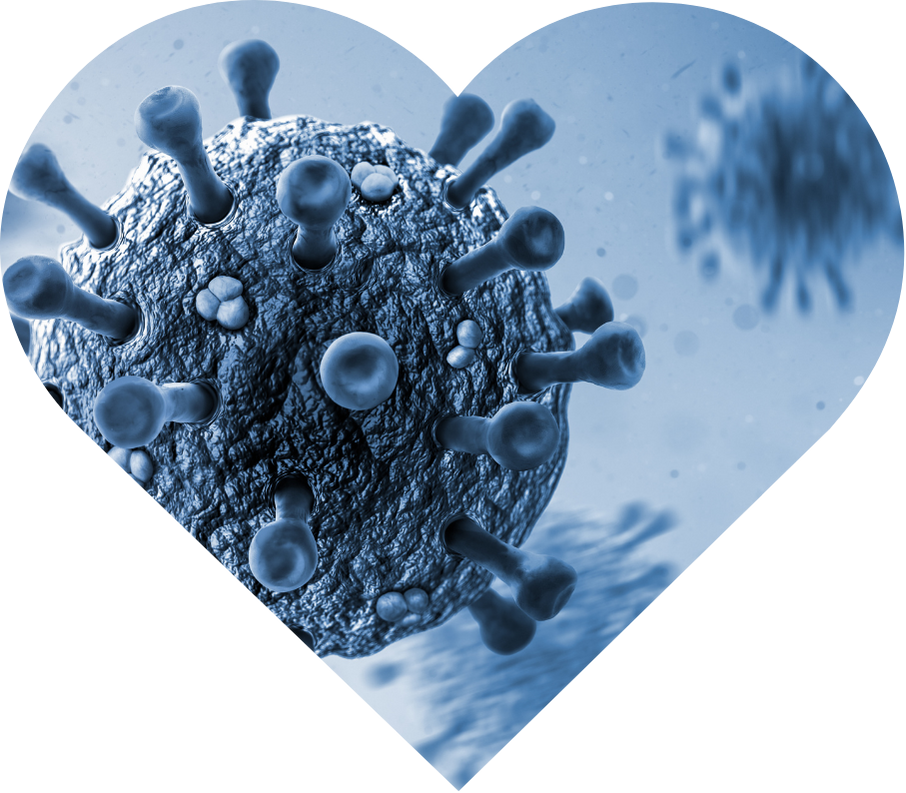Your immune system is like an elite security team in a skyscraper: it recognizes intruders, neutralizes threats, and repairs damage. However, in the case of autoimmune diseases, this team occasionally confuses its own staff with intruders. The result: chronic inflammation, loss of energy, and performance drops. The good news: you can recalibrate your team's operational rules – through nutrition, exercise, stress management, and targeted nutrients.
Autoimmune diseases occur when immune tolerance towards the body’s own structures breaks down. The consequence is a misguided inflammatory response against joints, skin, gut, nerves, or blood vessels. Key terms: HPA-Axisneuroendocrine stress system consisting of the hypothalamus, pituitary gland, and adrenal cortex, Cytokinessignaling molecules that regulate inflammation, T-regulatory cellsimmune cells that dampen excessive reactions, Eubiosishealthy balance of gut microbiota. Genes predispose individuals, but environment, lifestyle, and stress often determine whether the disease breaks out or flares up. For high performers, this means: lowering inflammation burdens, stabilizing sleep and stress reactions, and nurturing the microbiota shifts the balance back towards resilience, energy, and cognitive sharpness.
Chronic psychological stress disrupts the HPA-axis, leads to cortisol dysregulation, and fosters a pro-inflammatory environment. Reviews link this misregulation with diseases such as lupus, rheumatoid arthritis, and multiple sclerosis – a central, modifiable mechanism towards autoimmunity [1]. Lack of sleep exacerbates the problem: even acute all-nighters alter immune cell landscapes, activate autoimmune signatures in T and B cells, and weaken cytotoxic defenses – a double blow of increased inflammatory readiness and poorer infection control [2]. Lack of exercise has a similarly adverse effect: in cohorts and experimental approaches, more pro-inflammatory signaling and weaker immune regulation are observed, while regular activity strengthens Tregs and reduces pro-inflammatory patterns [3] [4]. Additionally, environmental toxins have been implicated: organochlorine pesticides have been found more frequently in scleroderma patients and promote immunological shifts towards pro-fibrotic cytokines – an indication of how toxic burdens can influence disease activity [5].
A population-based lupus cohort utilized single-cell transcriptomics to show that physical inactivity is associated with CD4+ T-cell lymphopenia and a pro-inflammatory gene signature in T cells. Upregulated were TNF-α, IFN-γ, and JAK/STAT signaling pathways – a plausible molecular lever for why exercise can reduce symptoms and inflammation [6]. A comprehensive review on stress biology describes how chronic stress derails the HPA-axis, paradoxically disrupts cortisol signals, and thus shifts cytokines towards autoimmunity. This axis disturbance mechanistically links psychological stress with autoimmune diseases and opens avenues for stress and neuroendocrine therapies [1]. In terms of nutrition, a recent review on rheumatic diseases shows that Mediterranean diets rich in polyphenols and fibers modulate inflammatory pathways, reduce oxidative stress, and stabilize immune balance through the gut microbiota – practical pillars of an anti-inflammatory diet [7]. Additionally, a meta-analysis on rheumatoid arthritis indicates that omega-3 improves fatty acid profiles, lowers triglycerides, and reduces the number of painful joints – clinically noticeable effects despite sometimes small changes in classic inflammatory markers [8].
- Switch to an anti-inflammatory, antioxidant-rich diet: a Mediterranean base pattern with plenty of vegetables, berries, olive oil, legumes, nuts, and spices (e.g., turmeric). Aim for 30+ plant foods per week to diversify the microbiota and strengthen the gut barrier [7].
- Prioritize fiber and polyphenols: daily fermented foods (yogurt, kefir, kimchi) and colorful plants (berries, green tea, cocoa) for a eubiotic gut environment and lower systemic inflammation [7].
- Incorporate regular physical activity: 150–300 minutes of moderate endurance training per week plus 2–3 strength sessions. Just the shift from "inactive" to "active" reduces pro-inflammatory T-cell signatures [6].
- Build movement micro-breaks into your day: mobilize for 2–3 minutes every 50–60 minutes, take the stairs instead of the elevator, and take short walks after meals – proven anti-inflammatory effective in the context of inactivity [3] [4].
- Train stress management: daily 10–15 minutes of meditation, breath work (e.g., 4-6 breathing), or a short yoga sequence. These practices have immunomodulatory effects and reduce pro-inflammatory burden [9] [10].
- Optimize omega-3: 2–3 servings of fish per week (salmon, mackerel, sardines) or supplements with EPA/DHA 1–3 g/day after consulting with a physician. Expected benefits: better fatty acid indices, lower triglycerides, and fewer painful joints [8].
- Protect your sleep: 7–9 hours, consistent bedtimes, dark, cool environment, and digital offboarding 60 minutes before sleep – to dampen autoimmune signaling pathways that spike during sleep deprivation [2].
- Reduce toxin exposure: avoid pesticides at home, prefer organic for the "Dirty Dozen," use water filters, and ventilate regularly. Lower environmental burden can mitigate immunological dysregulations [5].
The next wave of autoimmune research will integrate personalized lifestyle therapies with multi-omics – from microbiome profiles to HPA biomarkers. More precise protocols weaving nutrition, exercise, stress management, and nutrients into individual anti-inflammatory programs are to be expected. Those who start today lay the foundation for this future: resilient, energetic, and high-performing.
This health article was created with AI support and is intended to help people access current scientific health knowledge. It contributes to the democratization of science – however, it does not replace professional medical advice and may present individual details in a simplified or slightly inaccurate manner due to AI-generated content. HEARTPORT and its affiliates assume no liability for the accuracy, completeness, or applicability of the information provided.













